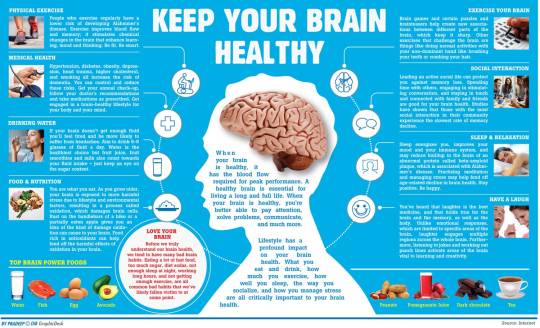Don't wanna be here? Send us removal request.
Text
Unlocking the Potential: A Guide to Optimizing Brain Health
Welcome to a journey towards unlocking the true potential of your brain. In today's fast-paced world, prioritizing brain health has become more crucial than ever. Our mental well-being plays a significant role in shaping how we navigate daily challenges, embrace opportunities, and ultimately lead a fulfilling life. Often termed as the "Brain Savior", nurturing our brain health forms the foundation for not just cognitive prowess but also emotional resilience. Let's delve into the realms of optimizing brain health and discover the tools and practices that can support this vital aspect of our overall well-being.
Optimizing Nutrition
A balanced diet plays a crucial role in maintaining optimal brain health. Including a variety of nutrient-rich foods such as fruits, vegetables, whole grains, lean proteins, and healthy fats can provide the brain with the essential nutrients it needs to function at its best. Foods rich in antioxidants like blueberries, kale, and nuts can help protect brain cells from damage caused by free radicals. Omega-3 fatty acids found in fatty fish like salmon and walnuts are also beneficial for brain health as they support cognitive function. Ensuring adequate hydration is also key as water plays a vital role in brain function and energy production.
Moreover, reducing the intake of processed foods, sugary snacks, and excessive caffeine can help maintain stable blood sugar levels and prevent energy crashes that may negatively impact cognitive performance. Full Story Here for high-quality, nutrient-dense foods to support overall brain health. It is also important to listen to your body's hunger and fullness cues to avoid overeating or undereating, as both can affect brain function. Making mindful choices when it comes to nutrition can lead to better cognitive performance and overall well-being.

In addition to food choices, meal timing can also influence brain health. Eating regular, balanced meals throughout the day can help stabilize blood sugar levels and provide a steady supply of nutrients to support brain function. Incorporating healthy snacks between meals can help maintain energy levels and prevent dips in concentration. Consistency in meal timing can also contribute to better sleep quality, which is essential for cognitive function and overall brain health. Remember, nourishing your body with the right nutrients at the right times is a key factor in optimizing brain health.
Exercising the Mind
Engaging in mental exercises is essential for maintaining optimal brain health. Activities such as puzzles, word games, and brain teasers can help challenge and stimulate the mind. By regularly incorporating these exercises into your routine, you can enhance cognitive function and improve memory retention.
In addition to traditional mental exercises, learning new skills and hobbies can also benefit brain health. Whether it's picking up a musical instrument, trying out a new language, or taking up a craft, exploring unfamiliar activities can create new neural pathways and boost overall brain function.
Furthermore, staying socially active can play a significant role in exercising the mind. Interacting with others, engaging in stimulating conversations, and participating in group activities can help keep the brain sharp and adaptable. Building and maintaining strong social connections is not only beneficial for mental well-being but also contributes to cognitive resilience as we age.
Healthy Lifestyle Habits
First and foremost, getting regular exercise is key to maintaining brain health. Physical activity not only improves blood flow to the brain but also stimulates the growth of new brain cells. Aim for a combination of cardiovascular workouts and strength training to keep both your body and mind in top shape.
Nutrition plays a vital role in brain health as well. Make sure to include plenty of fruits, vegetables, whole grains, and lean proteins in your diet. These foods provide essential nutrients and antioxidants that can protect brain cells from damage and support cognitive function. Additionally, staying hydrated by drinking an adequate amount of water each day is crucial for optimal brain performance.
Lastly, prioritize quality sleep to support brain function. During sleep, the brain consolidates memories and clears out toxins that can build up during the day. Aim for 7-9 hours of quality sleep each night by creating a relaxing bedtime routine and optimizing your sleep environment. Quality rest is essential for overall brain health and cognitive function.
1 note
·
View note